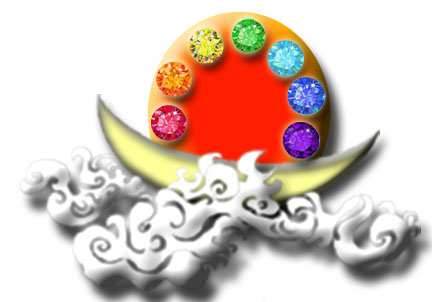Karma or the law of causation is not a universal principle in the west, but it is becoming more well known. I became a Buddhist because I could never understand how the Christian God would allow bad things to happen to good people and good things to bless evil beings. When I first heard of reincarnation and know that what happens to you may be karmic retribution from what you did in a past life, things began to make sense. Jesus did teach that “as you sow, so shall you reap” but the Christian religion no longer includes the possibility of reaping from past lives as well as the present. One of the most important evil views that must not be held is any doubt in the fact of karma and karmic retribution. In the Buddhist understanding, you are responsible for everything that happens to you. However, you can cultivate doing good and stopping doing bad things and change your life. Our evil karma does not go away, but we can build a wall of good karma to have the effect of blocking us from our deserved karmic retribution until we are better able to deal with it. We know that the whole goal of cultivation is to transform causality to have our good karma mature now and postpone the maturing of our bad karma.
Four Characteristics of Karma
It does not matter whether you believe in karma or not. It is a basic principle of the universe like gravity that cannot be denied. In general, karma has four characteristics: It is fixed or certain; karmic results (both good and bad) may be greater than the cause; it is infallible–it never errs; and once created, karma will not disappear of its own accord.

- Karma is fixed. You must understand the certainty of karma. As the song in the musical The Fantastiks says, “If you plant a carrot, you get a carrot, not a Brussels sprout.” This is also what was meant by the parable, “As you sow, so shall you reap.” You plant good causes, you reap good results. You plant evil causes, you reap bad results.
- Karmic results are greater than the cause–there is a magnification effect. Remember that mighty oaks from little acorns grow. This is true for both good and bad causes. A very small act of kindness may produce glorious results. However, even a slight act of evil may produce catastrophic results.
- Karma is infallible–the law of cause and effect (karma) never errs. You do not meet with something if you have not created the karma for it to happen. You will not experience the effects of actions that you, at some time and in some life, did not do. You must take responsibility for everything that happens to you.
- Once created, karma will not disappear of its own accord. The actions you have done do not perish. You cannot eliminate your karma. All you can do is create more good karma so as to block your evil karma, but the evil karma still does not go away. It is just pushed back.
Denying the Law of Cause & Effect is an Evil View
Evil View No. 26: Acknowledging that the law of cause and effect is illusory and unreal. Some people think that the law of cause and effect does not exist. They think that there is no need to be afraid since there is no karmic retribution. They think it is all right to do bad things as long as nobody finds out. In short, to them there is no such thing as karmic retribution. Remember, regarding the law of cause and effect as imaginary and not real is an evil view.





Add comment